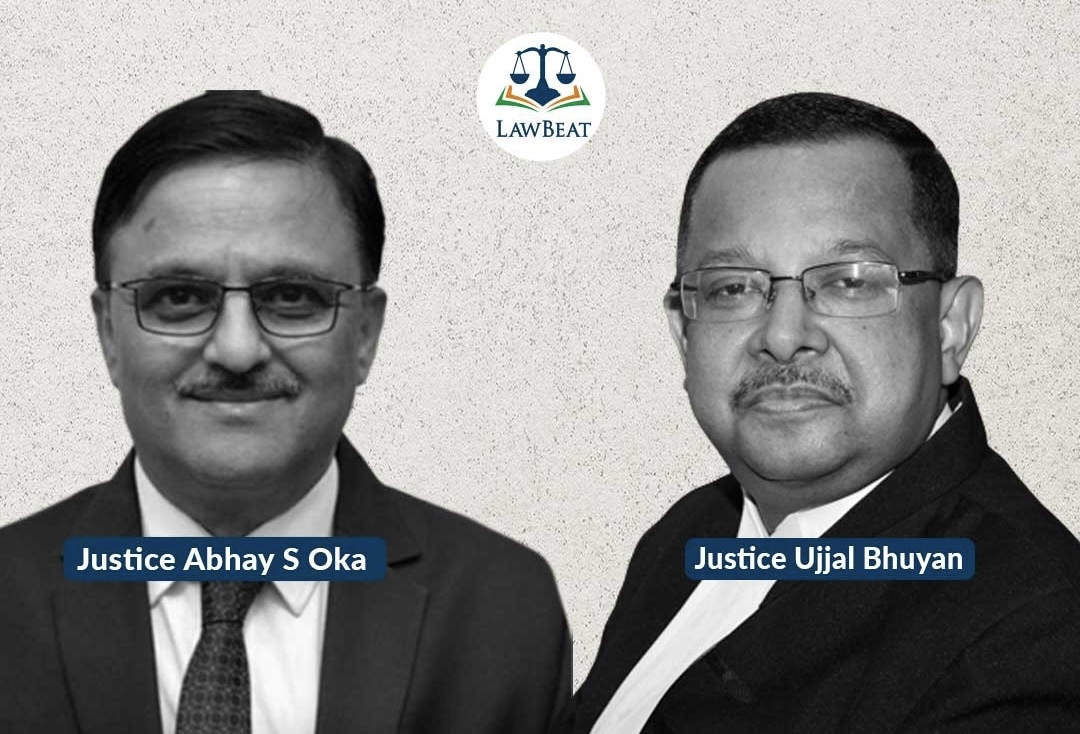Supreme Court Rejects Contention on Lack of Motive; Upholds Man's Conviction for Killing Brother's Father-in-Law

Court said that if there was no intention on the part of the appellant to cause bodily injury to the deceased and other injured witnesses, there was no reason for him to go back to his house and bring the weapon
The Supreme Court has on July 10, 2024 upheld conviction and sentence of life term imposed upon a man for killing his brother's father-in-law following an altercation with the sibling over a petty issue of payment of electricity bill.
A bench of Justices Abhay S Oka and Ujjal Bhuyan rejected contention of appellant Shanmugasekar that his case would be covered by the exceptions under Section 300 of the IPC as there was no motive on his part to commit the offence.
"It cannot be said that there was a sudden and grave provocation due to any act on the part of the deceased. The appellant himself started the dispute by questioning the PW-4, his own brother on non-payment of the electricity bill. Therefore, the appellant's case will not fall under Exception 1 or Exception 4 of Section 300 of the IPC," the bench said.
The court also said, "It may also be noted here that the post-mortem notes show that there was a brain injury inflicted on the deceased. The medical opinion is that the deceased died due to shock and bleeding on account of the chest injury and head injury".
The appellant's counsel submitted that the injuries were not sufficient by themselves to cause death in the ordinary course.
He also submitted that this was a case where there was no pre-meditation, and the offence occurred due to a sudden fight in the heat of passion. At the highest, the offence proved against the appellant will be punishable under Part II of Section 304 of the IPC, he argued.
The counsel also claimed that the appellant had no intention to kill the deceased Muthu. His dispute was with his brother Kesavan and it was the deceased who came to the site to intervene.
By no stretch of imagination, the appellant had any motive to kill the deceased Muthu. The motive has not been established. The intention of the appellant to kill Muthu has not been established, the counsel said.
The court, however, noted that the evidence of the prosecution witnesses revealed that Kesavan was the real brother of the appellant and Muthu was his father-in-law.
From the evidence of the material prosecution witnesses, it appears that there was a quarrel between the appellant and brother due to non-payment of the electricity bill of the house, and the altercation was on the night of September 28, 2016, the bench noted.
The whole thing started as the appellant questioned his brother as to why he had not paid the electricity bill. There does not appear to be any dispute on this, the court pointed out.
However, a perusal of the evidence showed after hearing the noise, the deceased came there and tried to intervene. The appellant and accused no 2, while the quarrel was going on, rushed back to their house and brought one Aruval (billhook) each in their hands and assaulted the deceased on his head, the bench recorded.
"As the eyewitnesses are related to the deceased, we have closely scrutinised their evidence. We find no material contradictions and omissions brought on record in their cross-examination. As the ocular evidence of the eyewitnesses inspires confidence, minor discrepancies in their evidence regarding the exact time of the incident are not sufficient to discard their testimony," the bench said.
The court opined there was no reason to interfere with the view taken by the courts that the offence punishable under Section 302 of IPC was proved beyond reasonable doubt.
"If there was no intention on the part of the appellant to cause bodily injury to the deceased and other injured witnesses, there was no reason for him to go back to his house and bring the weapon. He brought the billhook from his home, obviously to make an assault. It is not the defence of the appellant that the deceased was the aggressor. The deceased had come to the spot only to resolve the fight among the family members of the appellant," the bench said.
Case Title: Shanmugasekar Vs The State of Tamil Nadu
